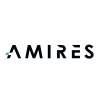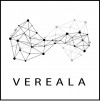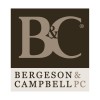This is an article from
Bergeson & Campbell, P.C. (B&C®) is a Washington D.C. law firm providing decades of experience in the manufacture, handling, and transport of conventional, biobased, and nanoscale industrial, agricultural,and specialty chemicals, including product approval and regulation, product defense, and associated business issues. www.lawbc.com
You can find the original article here.
On December 1, 2020, the French Agency for Food, Environmental and Occupational Health and Safety (ANSES) announced the results of an assessment of R-Nano, France’s national reporting scheme for substances in nanoparticle form. In 2013, France began requiring companies that manufacture, import, and/or distribute a “substance with nanoparticle status” in an amount of at least 100 grams per year to submit an annual report with substance identity, quantity, and use information. The data reported were intended to provide regulatory authorities a better understanding of the nanomaterials placed on the market, enable traceability in the sectors using them, and bring together knowledge for risk assessment and public information purposes. According to ANSES, while the information collected has helped improve the understanding of population exposure levels, “the overall level of information in the reports is unsatisfactory, meaning that the traceability objective has only been partially achieved.” ANSES states that the following improvements are necessary to make the system more reliable and optimize its use:
- Obtain reliable, high-quality data from reporting companies: According to ANSES, the flexibility granted to reporting companies when the system was first set up “now greatly undermines data quality.” ANSES emphasizes the importance of ending the exemptions granted and increasing reporting requirements;
- Broaden the scope of reporting to improve traceability of nanomaterials: To obtain full traceability of the nanomaterials on the market, ANSES recommends considering broadening the reporting requirement, lowering the threshold for reporting nanomaterials, and providing additional information, such as the number of workers potentially exposed to nanomaterials and the quantities deployed by type of use; and
- Improve data provision: ANSES recommends reexamining the confidentiality provisions in the regulations. According to ANSES, data access needs to be extended to public health players, and the decree listing the organizations with access should be revised to this effect.



















